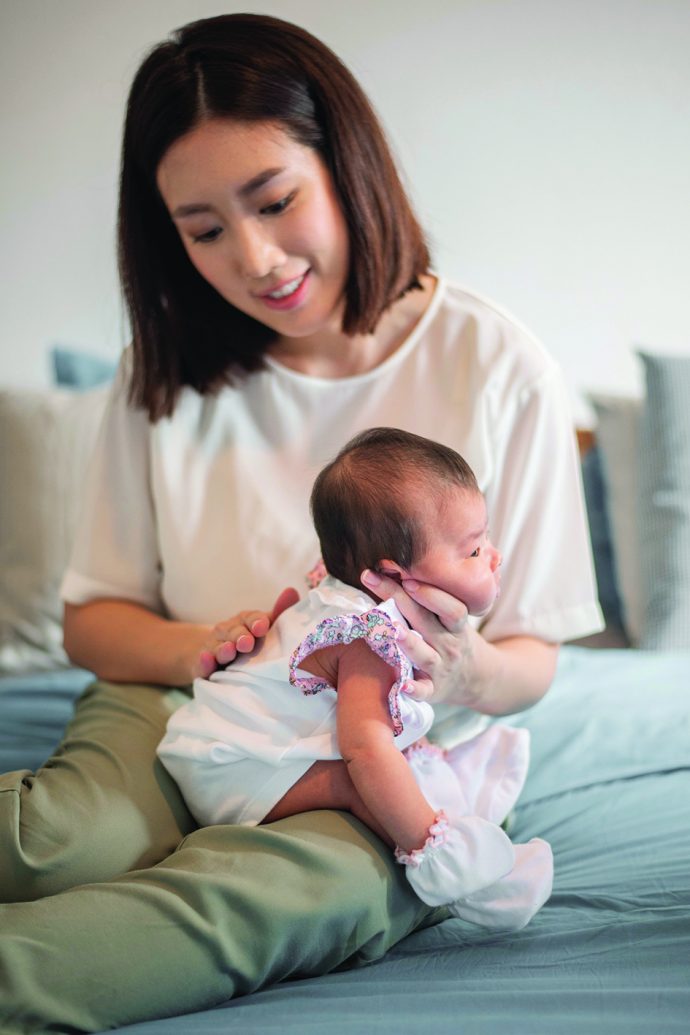Hiccups can be repetitive, uncontrollable, and irritating. When our babies have hiccups, we tend to worry that something is wrong. Should you worry if your baby has hiccups?
What causes hiccups in babies?
Hiccups can occur in all age groups, including babies. Hiccups are a common and natural reflex. We all have a muscle between the chest and abdomen, called the diaphragm, which moves when we breathe. Sudden contractions or spasms of the diaphragm together with closing of our vocal cords produce hiccups. Some babies develop hiccups if they have been drinking too quickly, or if they have been crying for a long time.
Are hiccups a cause of concern?
Hiccups are actually harmless to babies and a positive sign that your baby is healthy. Most bouts of hiccups are temporary and last between 5-15 minutes. Occasionally they may continue for a couple of hours. Hiccups do not disturb the baby. Some babies may continue to sleep when they have hiccups. It is usually parents who are worried that their baby is not comfortable, or that hiccups are sign of illness.
What should I do if my baby has hiccups?
Hiccups don’t require any special treatment. The best thing to do is to let the hiccups resolve on their own. If your baby is feeding well, gaining weight and doesn’t have difficulty sleeping, don’t be anxious. If your baby has other symptoms (refer to the box) together with persistent hiccups, you may wish to consult a doctor. Occasionally, babies with gastro-oesophageal reflux (GER) may have hiccups with other symptoms. GER is a condition where the stomach acid goes up the oesophagus and causes irritation.

What can you do to prevent hiccups?
- Practice proper feeding techniques
- Preventing an excessive intake of air is crucial. When breastfeeding, make sure the baby has a proper “latch” around the whole nipple.
- If your baby is bottle feeding, ensure that the bottle’s nipple is completely full of milk before feeding. Use the right nipple size so that the flow of milk is not too fast or too slow.
- Ensure proper posture during feeding
- Make sure to feed your baby in an upright position with the head elevated.
- Keep baby in an upright position for about 30 minutes after feeding.
- Periodic “burping” during and after feeding
- Periodically “burping” your baby every now and then during feeding sessions, by gently patting your baby’s back, can help to ease any built-up air in the stomach.
- Feed and drink at a slower pace
- Hiccups often occur from feeding too quickly. Feeding at a slower pace reduces the chance of hiccups.
- Avoid feeding when your baby is agitated
- Feeding when your baby is agitated, crying and moving will interfere with swallowing, irritate the diaphragm and thus, trigger hiccups. Soothe and calm your baby first before attempting feeding.






Comments